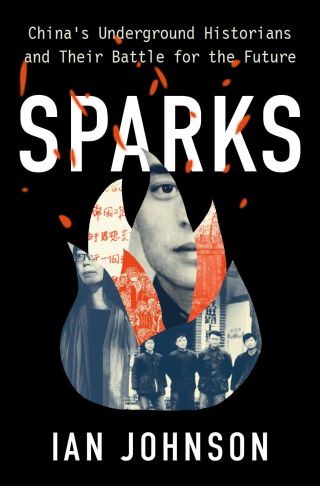Religion
The Struggle for a More Open Society in China
A conversation with author Ian Johnson.
Posted January 9, 2024 Reviewed by Abigail Fagan
Sometimes, you read one book of an author by happenstance and decide you probably should explore their other books. This happened when I first read Pulitzer Prize winning author Ian Johnson’s Sparks: China’s Underground Historians and Their Battle for the Future. I pivoted to The Souls of China: The Return of Religion After Mao, A Mosque in Munich: Nazis, the CIA, and the Rise of the Muslim Brotherhood in the West, and completed my journey by reading Wild Grass: Three Portraits of Change in Modern China. I learned a great deal from these books about writing, unique perspectives and voices from China, the critical importance and value of history and religion, and the value of outsiders and the promise of change.

JW: In Sparks, you note that “Change in any society usually comes through small numbers of people who start as outsiders,” and in Wild Grass you note that “the push for change comes mostly from people we rarely hear of.” By documenting and telling the stories of seemingly ordinary people pushing for change, what have you learned?
IJ: In the nearly 20 years between the publication of Wild Grass (2004) and Sparks (2023), I've come to realize two things. First, the struggle for a more open society in China will take longer than expected. In the early 2000s, I would not have expected that China would be more repressive in the 2020s. I was realistic enough to know that change is not linear and there would be setbacks, but I didn't anticipate the authoritarian backlash that took hold in the late 2000s and which continues today.
Second, I've come to appreciate the flip side of that: that resistance in China is more persistent and sustained than many people realize. The fact that there are still people in the dark days of Xi's China fighting for a more open, tolerant society shows that the roots of opposition in China run deep and are harder to wipe out than many people anticipate.
JW: One theme across your books is that of religion. Both A Mosque in Munich and The Souls of China explore these themes, but religious freedom is also a core theme in Wild Grass and Sparks. What role does religion play in understanding China?
IJ: Religion is largely neglected in understanding China (except of course among religious scholars). This is a pity because it motivates a disproportionate number of people who oppose the Communist Party. There are various theories for that but perhaps paramount is that almost every religion offers a value system that is above the temporal political systems that come and go. This can motivate people to stand up for these values, which often are at odds with authoritarian political control of society.
JW: Another theme across your books is an emphasis on history. What is your take on how an understanding of history is important to understand the people of China?
IJ: History is important in every country, but in China, it is important because the Communist Party's argument about why it runs the country is essentially that history put it in charge of the country to save it. In addition, the party argues that history shows that it has a largely unblemished record in running China and therefore should be allowed to run the country indefinitely into the future. China's citizen historians show that this is not true. By documenting a history of famines, purges, and massacres, they show that the Communist Party's rule has been cruel and often incompetent, raising questions about why it should be allowed to rule. In essence, they challenge the legitimacy of Communist rule.


